SRM-AP All News
ALL News
Redefining information-centric IoT networks in the internet architecture
June 22, 2021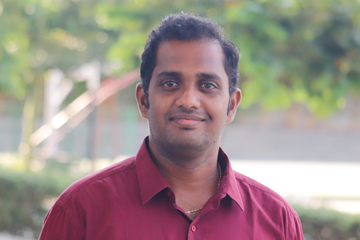 Dr Satish Anamalamudi, Assistant Professor, in the Department of Computer Science and Engineering has published a research paper titled “Cooperative Caching Scheme for Machine-to-Machine Information-Centric IoT Networks” in the IEEE Canadian Journal of Electrical and Computer Engineering. The research paper is co-authored by Dr Mohammed Saeed Alkatheiri and Dr Eesa Al Solami of University of Jeddah, Saudi Arabia and Dr Abdur Rashid Sangi of Yibin University, China.
Dr Satish Anamalamudi, Assistant Professor, in the Department of Computer Science and Engineering has published a research paper titled “Cooperative Caching Scheme for Machine-to-Machine Information-Centric IoT Networks” in the IEEE Canadian Journal of Electrical and Computer Engineering. The research paper is co-authored by Dr Mohammed Saeed Alkatheiri and Dr Eesa Al Solami of University of Jeddah, Saudi Arabia and Dr Abdur Rashid Sangi of Yibin University, China.According to the authors, Information-centric networks (ICNs), a foreseen future Internet architecture, focuses on the application content rather than its hosting location. With this, the existing Internet protocol (IP)-based host-centric communication model can be transformed into a content-centric communication model with the support of in-network caching, name-based routing, and location-independent content domain names. Recently, ICN is proposed to be a potential Internet architecture for Internet-of-Things (IoT) networks due to minimal retrieval delays and reduced load on the data producer. Content retrieval from IoT nodes plays a prominent role in enhancing the performance of the ICN-IoT networks. The in-network caching of ICN enhances the data availability in the network, overcome the issue of single-point failure, and improve IoT devices power efficiency. In this work, the authors explore a cooperative caching scheme for information-centric-IoT networks to optimize the cache hit with the support of a caching network topology model, a content popularity model, and an exogenous request access model.
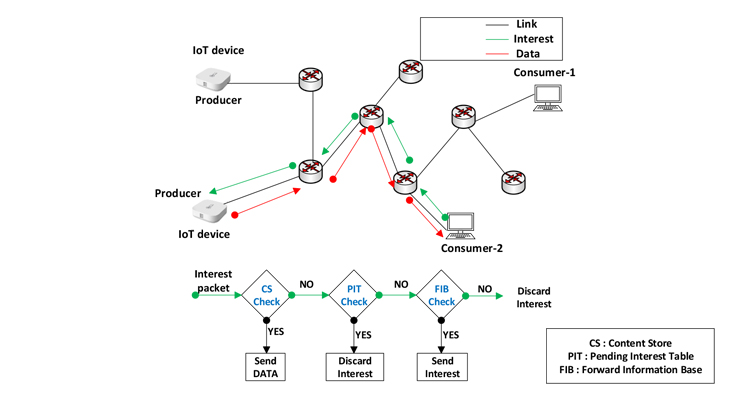 Dr Satish says that ICN proposes to shift the existing complex Internet model to a simple and generic one. This approach considers the content as the first-class network citizen. In ICN, contents are addressed and routed by their unique names and are decoupled from the address of the node storing it. In this way, consumers ask for information by its name rather than its locality address. In ICN, every content is identified by using a unique, persistent and location-independent name. A wide set of IoT applications is inherently information-centric. In fact, the majority of IoT applications target data regardless of its source. For instance, environmental monitoring applications are oblivious to the information origin. ICN is a promising candidate for IoT environments. It can natively support IoT scenarios while improving data dissemination and reducing network complexity.
Dr Satish says that ICN proposes to shift the existing complex Internet model to a simple and generic one. This approach considers the content as the first-class network citizen. In ICN, contents are addressed and routed by their unique names and are decoupled from the address of the node storing it. In this way, consumers ask for information by its name rather than its locality address. In ICN, every content is identified by using a unique, persistent and location-independent name. A wide set of IoT applications is inherently information-centric. In fact, the majority of IoT applications target data regardless of its source. For instance, environmental monitoring applications are oblivious to the information origin. ICN is a promising candidate for IoT environments. It can natively support IoT scenarios while improving data dissemination and reducing network complexity.Dr Satish Anamalamudi had been a Research Engineer with Huawei Technologies, Beijing, China. He also worked with the Huaiyin Institute of Technology (HYIT), Huai’an, China, until February 2018. He is currently an Assistant Professor with the Department of Computer Science and Engineering, SRM University-AP, Andhra Pradesh. His research interests include the common-control-channel design for MAC and routing protocols in cognitive radio ad hoc networks, MAC, and routing protocol design of Internet of Things (IoT) and 5G networks.
Read the full paper here: https://doi.org/10.1109/ICJECE.2020.3046844
Continue reading →- SRM University-AP collaborates with the American Society of Mechanical Engineers (ASME) June 21, 2021
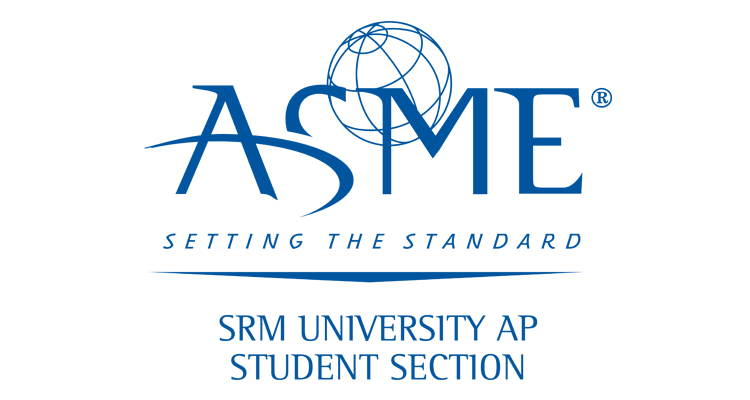 The Department of Mechanical Engineering, SRM University-AP, Andhra Pradesh, introduces the globally recognised American Society of Mechanical Engineers (ASME) membership programmes to its students.
The Department of Mechanical Engineering, SRM University-AP, Andhra Pradesh, introduces the globally recognised American Society of Mechanical Engineers (ASME) membership programmes to its students.The American Society of Mechanical Engineers (ASME) is a non-profit establishment formed for the global engineers’ community that promotes collaboration, knowledge sharing, career enhancement, and skill development. ASME Student Chapter helps university engineering students develop their professional identity and provides essential engagement opportunities by offering access to a wide range of activities and resources such as membership, competitions, scholarships, student sections and much more.
The engineering curriculum is not restricted to the theoretical aspects but involves practical applications. The collaboration with ASME will help students of our university to find engineering-related job articles, online journals, webinars, and workshops on a single platform. Students will be exposed to niche career paths and opportunities across industries where they can apply their mechanical engineering education to address critical issues facing the globe. Students can get in touch with experienced professionals all around the world through the ASME mentoring programme and seek careers or any other type of guidance.
SRM University-AP collaborates with global organisations to promote international exposure of students. In collaboration with ASME, the Department of Mechanical Engineering will be organising webinars and workshops by eminent faculties of the institute, where they will share their experiences and knowledge with the participants. The programme aims to create extraordinary learning experiences for the students to carry out many activities under this umbrella and fulfil the expectations of ASME.
Dr Prakash Jadav, Associate Professor in the Department of Mechanical Engineering, will be acting as faculty adviser for this chapter which is headed by Tushar Sahu.
Continue reading → - SVS Sri Harsha gets admission in leading IIMs across India June 18, 2021
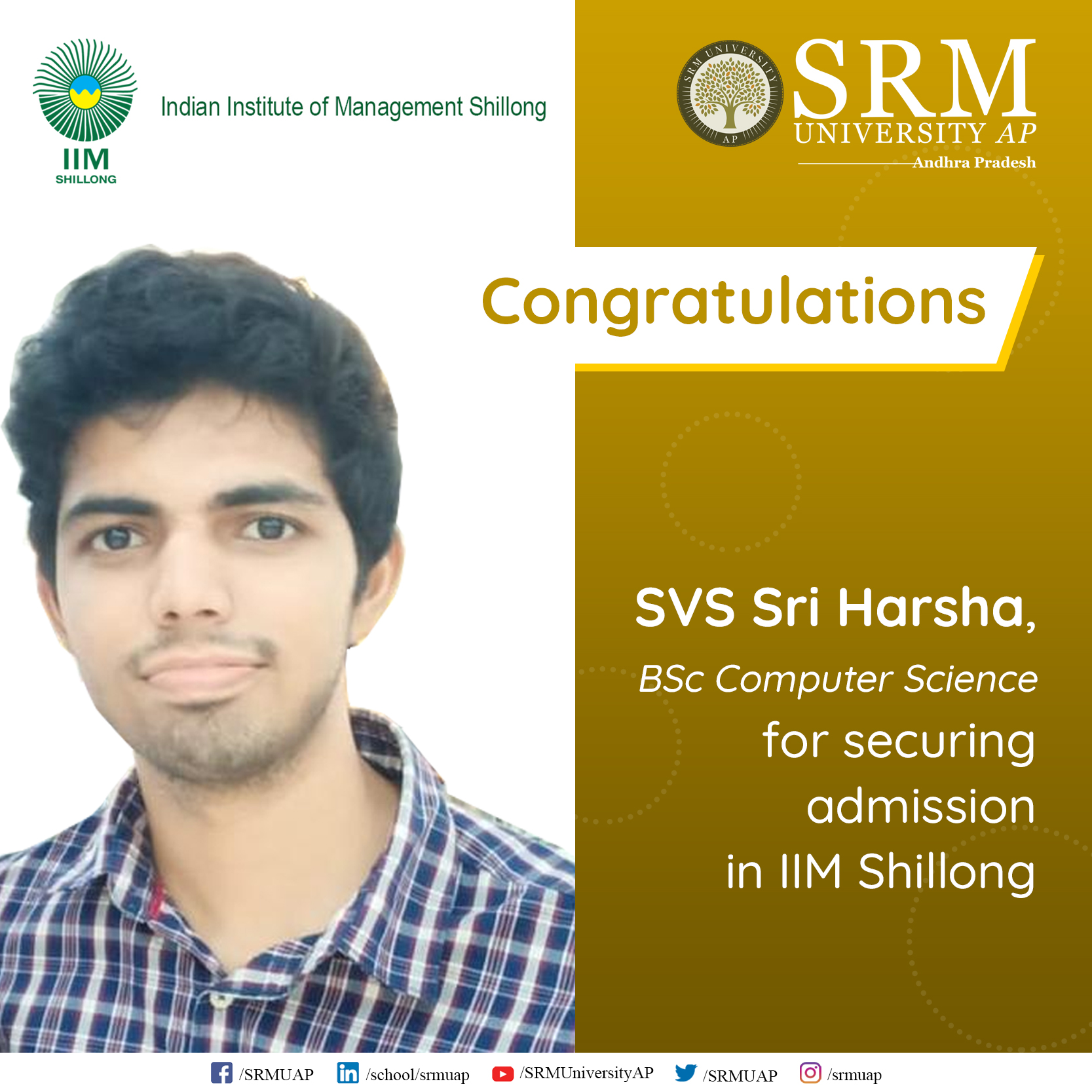 SVS Sri Harsha, a final-year BSc Computer Science student at SRM University-AP, Andhra Pradesh, receives admission offers from India’s top business schools. As an extremely meritorious student, he has qualified CAT, XAT, NMAT and SNAP. He scored a percentile of 98.9 in CAT and has got the opportunity to study MBA at any one of the IIMs in Shillong, Kozhikode, Raipur, and Bodh Gaya. In addition to these apex management institutes, he has also received offers from XLRI-Xavier School of Management, Jamshedpur; Institute of Management Technology, Ghaziabad; NMIMS, Mumbai; Symbiosis Institute of Business Management, Pune; and International Management Institute, Delhi. He hails from Vijayawada and completed his schooling in Delhi.
SVS Sri Harsha, a final-year BSc Computer Science student at SRM University-AP, Andhra Pradesh, receives admission offers from India’s top business schools. As an extremely meritorious student, he has qualified CAT, XAT, NMAT and SNAP. He scored a percentile of 98.9 in CAT and has got the opportunity to study MBA at any one of the IIMs in Shillong, Kozhikode, Raipur, and Bodh Gaya. In addition to these apex management institutes, he has also received offers from XLRI-Xavier School of Management, Jamshedpur; Institute of Management Technology, Ghaziabad; NMIMS, Mumbai; Symbiosis Institute of Business Management, Pune; and International Management Institute, Delhi. He hails from Vijayawada and completed his schooling in Delhi.“I started my preparation for CAT from the end of March 2020 and successfully achieved the percentile. I am extremely happy that I got calls from reputed institutes in the country as it was my dream to pursue an MBA from any one of these institutes after completing my bachelor studies”, said Harsha. “I would like to express my gratitude to the computer science head of the department, Dr T Ragunathan, and the faculty members for their unwavering support throughout my academic journey at SRM University-AP” he added.
Continue reading → - Infoedge hires Srikanth Somarouthu with an exciting CTC of 12.5 LPA June 18, 2021
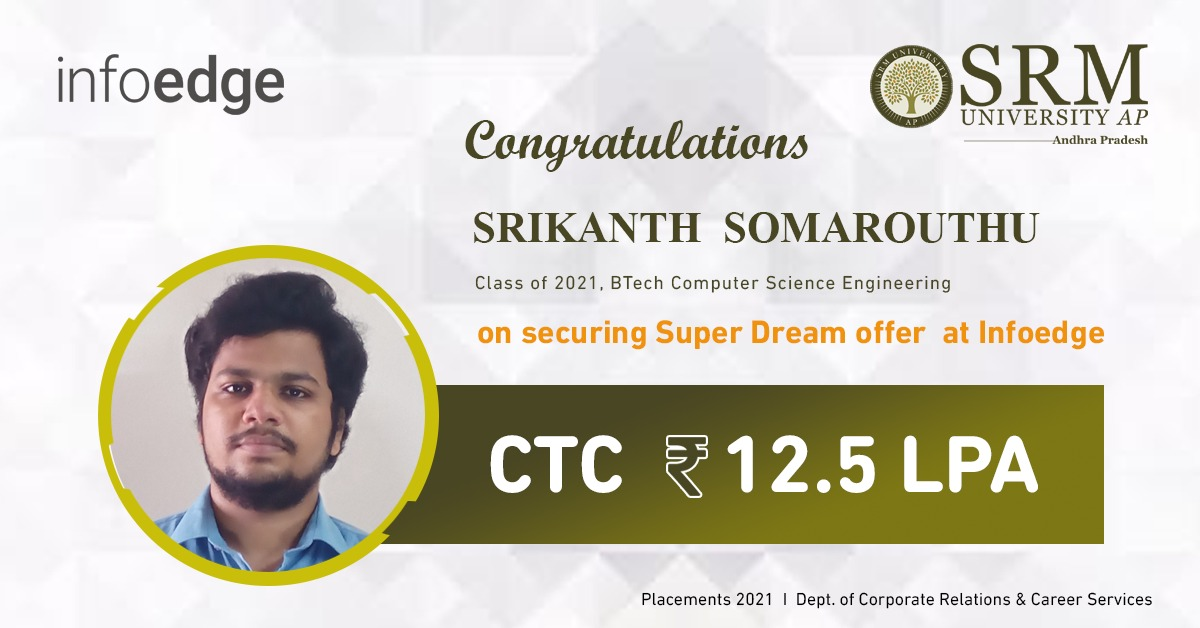 Dreams do come true when you grab the opportunities that come by. Srikanth Somarouthu, a BTech final year student from the Department of Computer Science and Engineering, SRM University-AP, Andhra Pradesh, gets placed as a software engineer with Infoedge. This extreme moment of happiness with a prestigious company offering an incredible CTC is the result of the persistent mentoring he received during his studies at university.
Dreams do come true when you grab the opportunities that come by. Srikanth Somarouthu, a BTech final year student from the Department of Computer Science and Engineering, SRM University-AP, Andhra Pradesh, gets placed as a software engineer with Infoedge. This extreme moment of happiness with a prestigious company offering an incredible CTC is the result of the persistent mentoring he received during his studies at university.Srikant has been preparing for a year to perfectly fit the company’s recruitment process. He underwent rigorous training programmes conducted by the Department of Corporate Relations and Career Services. Mock tests were conducted at regular intervals with industry experts to polish his coding and aptitude skills. In addition to this, separate sessions by Career Development Centre (CDC) were carried out to develop his soft skills to qualify for the final interview rounds.
“I sincerely express my gratitude towards the Department of CR and CS, SRM-AP, for conducting a well-planned training programme both on theoretical and practical levels,” said Srikant. “The University played a major role in providing me with opportunities to participate in competitive programmes and offered a global standard curriculum that has shaped my career. SRM University-AP has prepared me with practical knowledge right from the inception of the UG course. I am thankful to the faculty members of my department who guided and encouraged me to embark into the field. The nurture and guidance that I received from the University have given me ample confidence to be competitive enough and grab the Super dream offer”, he added.
Mr Vivekanandan, Assistant Director, Corporate Relations and Career Services, said, “We always looked for the best opportunities for our students. The talent exhibited by the CSE students during the internships, projects, curriculum and extra-curriculum activities naturally drew the best recruiters to SRM University-AP.”
Continue reading → - Microalgal biomass heralds sustainable biofuel production June 14, 2021
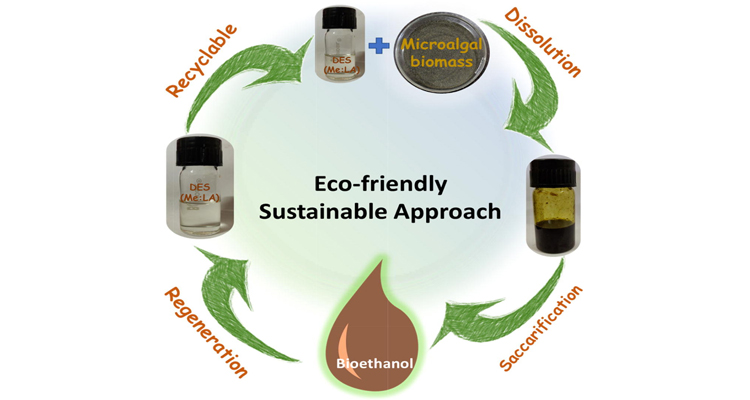 Dr Imran Pancha, Assistant Professor in the Department of Biological Sciences, has recently published a paper titled “Deep eutectic solvents and Ionic liquid assisted hydrolysis of microalgal biomass: A promising approach towards sustainable biofuel production” in the celebrated Journal of Molecular Liquids (2021): 116264 (Impact Factor-5.065). The study was conducted in association with Akshay Kulshrestha, Sandhya Mishra, and Arvind Kumar from CSIR-CSMCRI
Dr Imran Pancha, Assistant Professor in the Department of Biological Sciences, has recently published a paper titled “Deep eutectic solvents and Ionic liquid assisted hydrolysis of microalgal biomass: A promising approach towards sustainable biofuel production” in the celebrated Journal of Molecular Liquids (2021): 116264 (Impact Factor-5.065). The study was conducted in association with Akshay Kulshrestha, Sandhya Mishra, and Arvind Kumar from CSIR-CSMCRIMicroalgae is recently considered one of the promising biomasses for the production of renewable energy such as biodiesel and bioethanol. Microalgae are tiny photosynthetic organisms that utilise atmospheric CO2, water and sunlight to produce carbohydrates and lipids, which can be converted into renewable fuels. Compared to higher plants, microalgae is a good platform for bioethanol production as they do not contain any lignin in their cell composition, which makes pre-treatment for biomass hydrolysis easy. In the present study, Dr Pancha and his team explored the use of green solvents ionic liquids (ILs) and deep eutectic solvents (DESs) for microalgal hydrolysis. They observed that among the eight tested ionic liquids, ethyl ammonium nitrate (EAN) resulted in the highest saccharification yield of 95.5%. Whereas, among hydrophobic deep eutectic solvents, menthol: lactic acid (Me: LA) exhibited the highest saccharification yield of 85.7% and also did not require any additional high temperature or other pre-treatments for biomass hydrolysis, indicating as the potential solvent system for microalgal biomass hydrolysis. Overall, the present study results indicated that the identified IL and DES could be used as a green and sustainable alternative for the pre-treatment of microalgal biomass for bioethanol production.
Due to limited fossil fuel reserve as well as environmental issues like high greenhouse gas emission and other environmental problems, finding green and sustainable energy resource is of prime importance for today’s world. To solve this problem, microalgae are among the best resources for producing renewable resources due to it’s high growth rate and photosynthetic ability. Microalgae also have the ability to obtain nutrients from various wastewater, so they also do not require fresh water for cultivation. However, commercial-scale production of microalgae-based biofuels faces various problems such as cultivation cost, downstream processing for biofuel production etc. In this regard, in the present work, Dr Pancha demonstrated the use of ILs and DESs for pre-treatment of microalgal biomass for reducing sugar production, which can be further utilised to produce bioethanol.
Dr Pancha and his research group are further devoted to understanding the molecular mechanism behind the accumulation of energy reserved compounds in the microalgae and developing a sustainable biorefinery process to extract biofuels and other industrially relevant compounds from single microalgal biomass.
Read the full paper: https://doi.org/10.1016/j.molliq.2021.116264
Continue reading → - Physics student files patent June 14, 2021
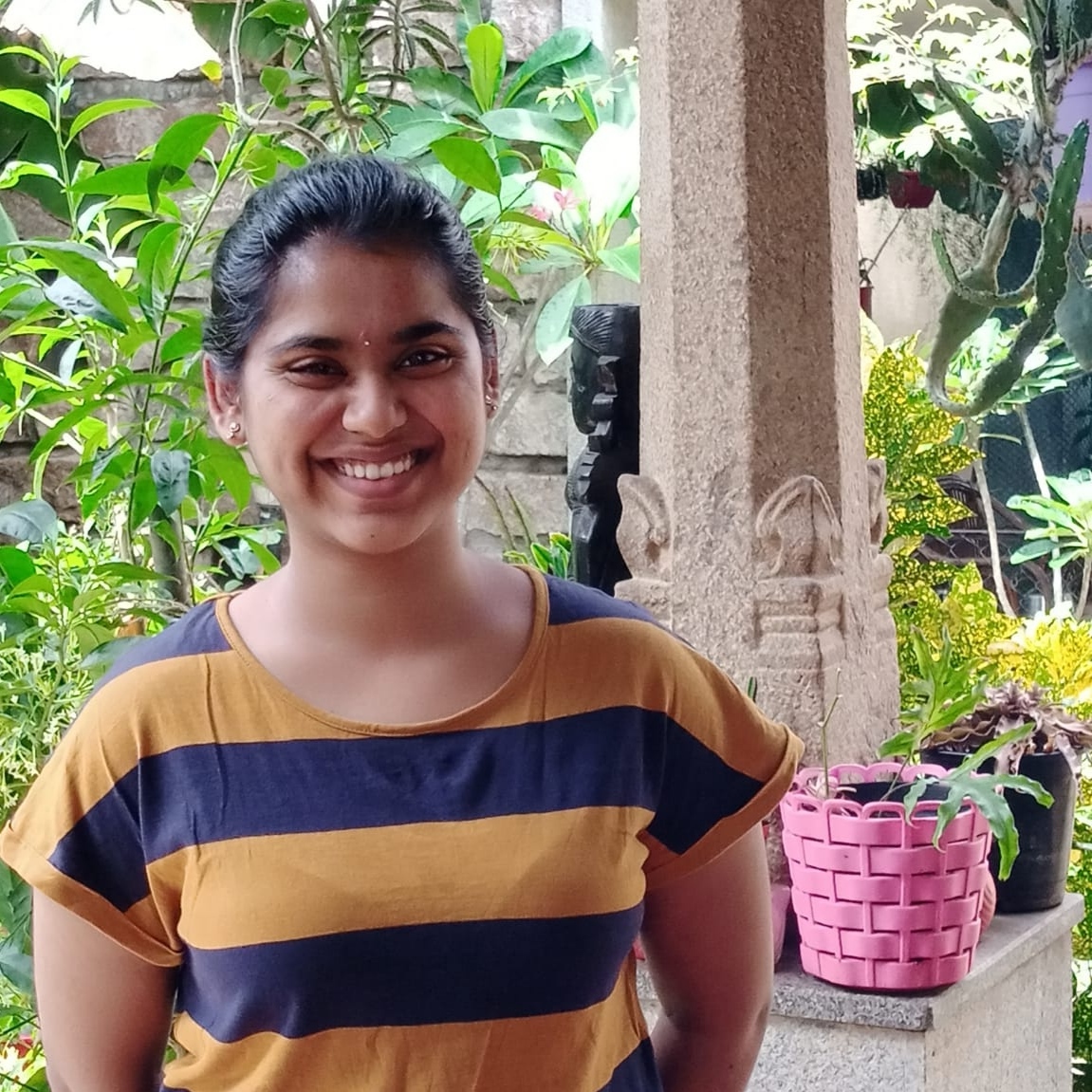 Ms Sreelekha Bhuvaneswari, a BSc physics final year student, in SRM University AP, Andhra Pradesh, filed a patent for her work titled “A fibre material with moisture retention capacity with thermal tolerance and a method for manufacture” under the guidance of Dr Sabyasachi Mukhopadhyay, Assistant Professor, Department of Physics, SRM University-AP.
Ms Sreelekha Bhuvaneswari, a BSc physics final year student, in SRM University AP, Andhra Pradesh, filed a patent for her work titled “A fibre material with moisture retention capacity with thermal tolerance and a method for manufacture” under the guidance of Dr Sabyasachi Mukhopadhyay, Assistant Professor, Department of Physics, SRM University-AP.The project, with the patent application number 202141023375, develops a methodology to design a fabric cloth that would replace the use of air conditioners. This cloth design is inspired by Saharan silver ants which regulate their body temperatures in the scorching desert heat and also from the cooling properties of clay. This research would significantly scale down the usage of AC and other cooling devices in warm places, thus reducing the use of electricity and emission of greenhouse gases to the environment. As this cloth would be environment friendly with long durability and cost-efficiency, Sreelekha hopes that this research would bridge the socioeconomic divide of haves and have-nots between communities.
“I am grateful to Dr Sabyasachi sir for his constant help and guidance along the way. There were several failed models, but he believed in the concept and that inspired me to go forward with the project,” said Ms Bhuvaneswari. “The facilities at the University made the process seamless; once the proposal was made, the procedure was automated. I thank the officials of SRM University-AP for believing in my proposal and helping me get through the procedures smoothly. If it were not for the facilities available at my university, I could not have finished the design,” She added.
Continue reading → - Dr Lakhveer Singh expounds alternate energy sources June 12, 2021
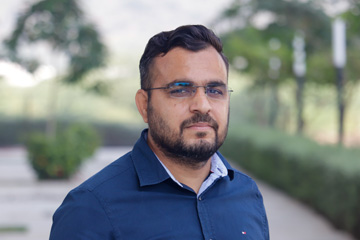 A scientific research paper has been published by Dr Lakhveer Singh, Assistant Professor in the Department of Environmental Science, SRM University-AP.
A scientific research paper has been published by Dr Lakhveer Singh, Assistant Professor in the Department of Environmental Science, SRM University-AP.“The Role of Conductive Nanoparticles in Anaerobic Digestion: Mechanism, Current Status, and Future Perspectives”, published in the Chemosphere Journal, discusses in detail the application of conductive nanoparticles to enhance the AD process efficiency and the interaction between microbes in anaerobic conditions for electron transfer with the help of CNPs. Application of a variety of conductive nanomaterials as an additive is discussed with their potential biogas production and treatment enhancement in the anaerobic digestion process. The Impact factor of the journal is 5.77.
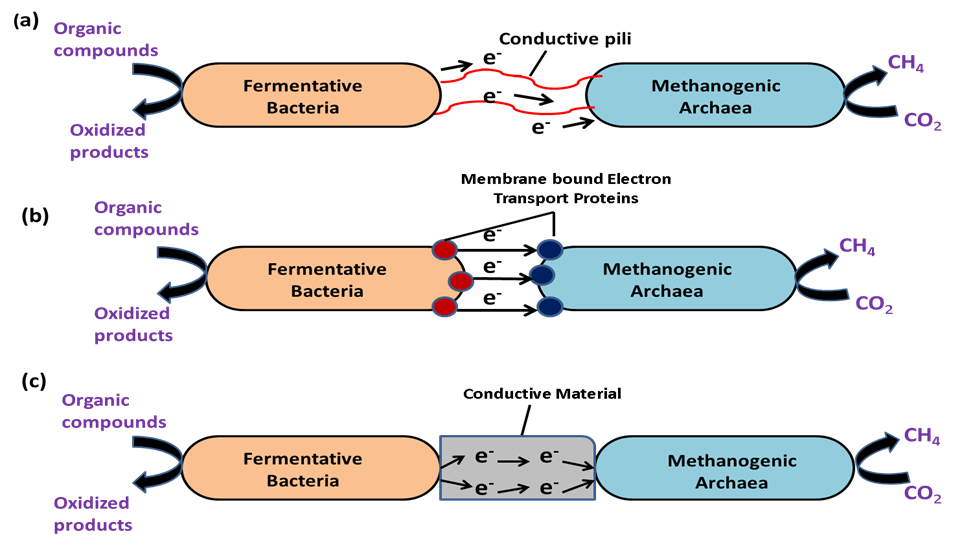
Dr Singh is an Editorial Board member of the Journal of Biomass Conversion and Biorefinery – Springer (I.F. 2.60) and a Guest Editor for Bioresource Technology Reports- Elsevier. His future research targets to reduce the component costs and test the proposed design using real waste streams, as well as continue to increase the reactor volume.
Read the full paper here: https://doi.org/10.1016/j.chemosphere.2021.130601
Continue reading → - Environment Conservation is Responsibility June 12, 2021
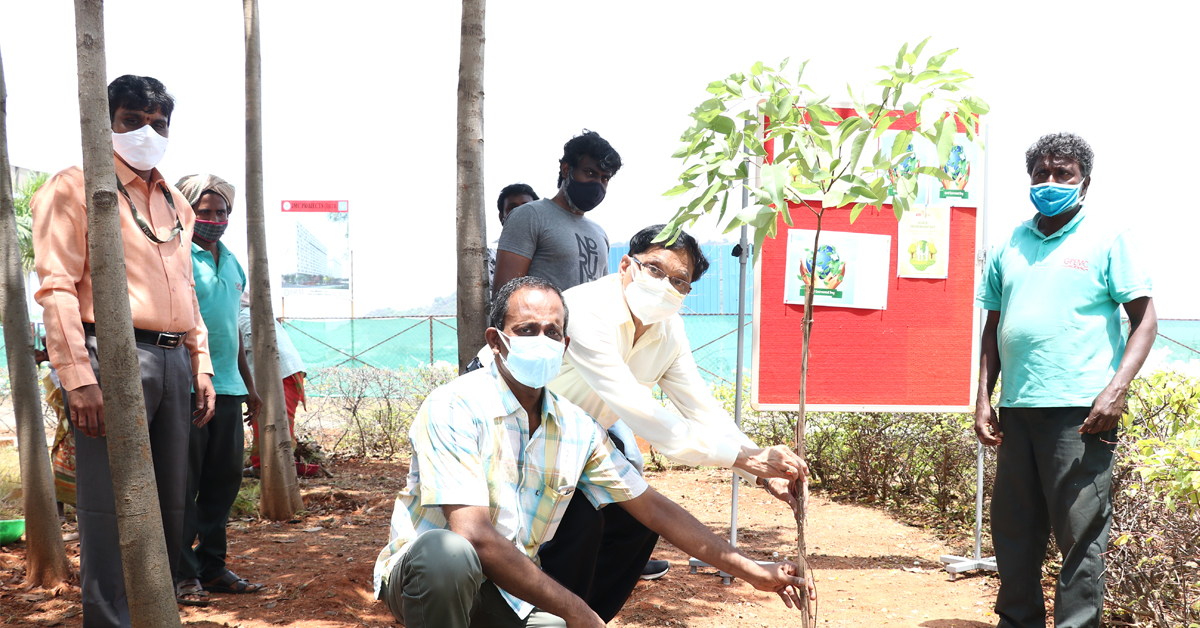 As part of World Environment Day celebrations, SRM University-AP, Andhra Pradesh, plants diverse plant and tree saplings in the campus to pledge commitment as a Generation of Restoration. Prof V S Rao, Vice Chancellor, inaugurating the initiative said that deforestation causes crisis of oxygen and changes in climate by irrevocably destabilizing human life on earth. “Educational and governmental institutions in both villages and cities should take part in conserving the greenery of Earth”, he added. Dr Sivakumar, Deputy Dean, Mr Venkatachalam, Director – Campus Life, Mr Venugopal, Media and PRO and other officials in the University were present on the occasion adhering all the Covid-19 protocols. The Student Affairs Department also conducted an online quiz competition as part of World Environment Day awareness programmes
As part of World Environment Day celebrations, SRM University-AP, Andhra Pradesh, plants diverse plant and tree saplings in the campus to pledge commitment as a Generation of Restoration. Prof V S Rao, Vice Chancellor, inaugurating the initiative said that deforestation causes crisis of oxygen and changes in climate by irrevocably destabilizing human life on earth. “Educational and governmental institutions in both villages and cities should take part in conserving the greenery of Earth”, he added. Dr Sivakumar, Deputy Dean, Mr Venkatachalam, Director – Campus Life, Mr Venugopal, Media and PRO and other officials in the University were present on the occasion adhering all the Covid-19 protocols. The Student Affairs Department also conducted an online quiz competition as part of World Environment Day awareness programmes World Environment Day is observed annually to fundamentally raise awareness among people about the importance of ecosystem preservation. This year’s theme is ‘Reimagine. Recreate. Restore.’
Continue reading → - Department of Physics set to work on bilateral project with IIT Bhilai June 10, 2021
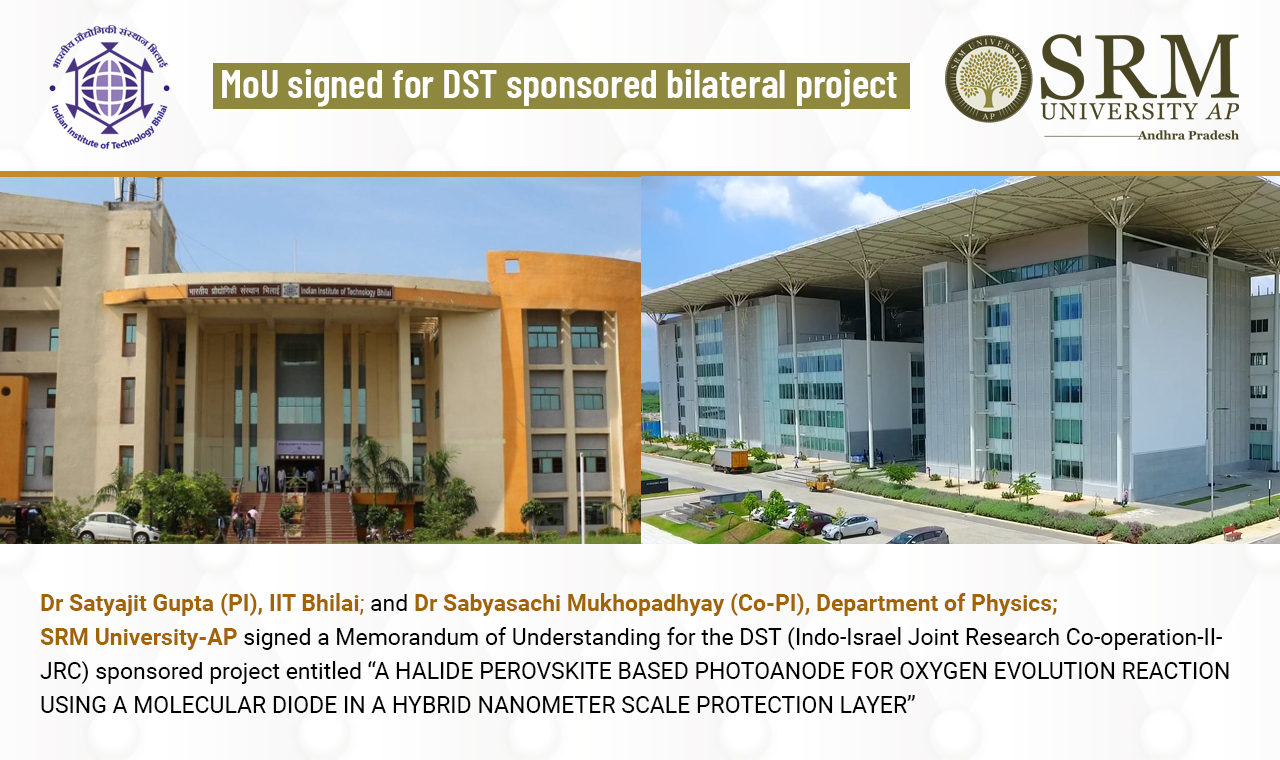 Dr. Satyajit Gupta (PI), IIT Bhilai, and Dr Sabyasachi Mukhopadhyay (Co-PI), Department of Physics, SRM University-AP has signed a Memorandum of Understanding for the DST (Indo-Israel Joint Research Co-operation-IIJRC) sponsored project entitled “A HALIDE PEROVSKITE BASED PHOTOANODE FOR OXYGEN EVOLUTION REACTION USING A MOLECULAR DIODE IN A HYBRID NANOMETER SCALE PROTECTION LAYER”, Sanction Order NO. – DST/INT/ISR/P-28/2020(G). The project is a bilateral project and Foreign PI is Dr Eran Edri, Department of Chemical Engineering, Ben-Gurion University of the Negev, Israel. This MoU will help Dr Mukhopadhyay to utilize the fund under this project as co-PI, and the facility of IIT Bhilai to complete the objective of the project.
Dr. Satyajit Gupta (PI), IIT Bhilai, and Dr Sabyasachi Mukhopadhyay (Co-PI), Department of Physics, SRM University-AP has signed a Memorandum of Understanding for the DST (Indo-Israel Joint Research Co-operation-IIJRC) sponsored project entitled “A HALIDE PEROVSKITE BASED PHOTOANODE FOR OXYGEN EVOLUTION REACTION USING A MOLECULAR DIODE IN A HYBRID NANOMETER SCALE PROTECTION LAYER”, Sanction Order NO. – DST/INT/ISR/P-28/2020(G). The project is a bilateral project and Foreign PI is Dr Eran Edri, Department of Chemical Engineering, Ben-Gurion University of the Negev, Israel. This MoU will help Dr Mukhopadhyay to utilize the fund under this project as co-PI, and the facility of IIT Bhilai to complete the objective of the project.The Objectives of the MoU are to promote effective application of resources through Indo-Israel Joint Research Co-operation-(IIJRC) sponsored project, promote mentorship and research guidance, and cooperate in educational/research areas of mutual interest. It also aims to promote international collaborations through International travel of Party, hosting International delegates, and through a student exchange programme between Indian Institute/Universities and Ben-Gurion University of the Negev, Israel.
The MoU will provide a platform to share and exchange Best Practices, and facilitate exchange programmes for students. Dr Satyajt Gupta and Dr Sabyasachi Mukhopadhyay will provide training and development for students working under this joint project.
Continue reading → - Student interview: On getting admissions in foreign universities June 10, 2021
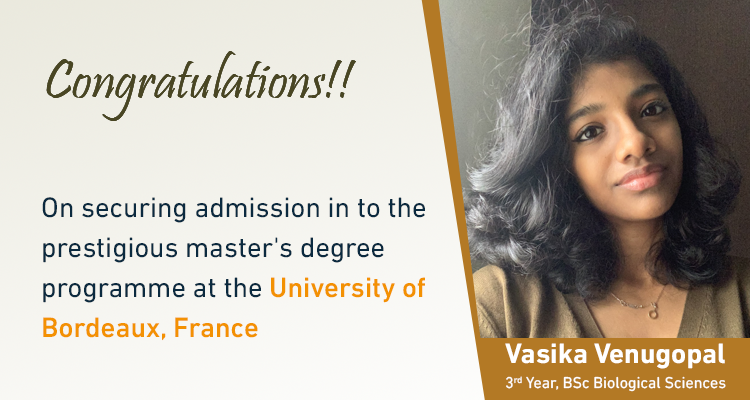 Ms Vasika Venugopal, a final year BSc Biology student at SRM University-AP has secured awe-inspiring admissions in a number of eminent higher education institutions inside and outside India. She is selected for the Master’s programme at the University of Tübingen, Germany; Charité -Universitätmedizin Berlin, Germany; University of Wuerzburg, Germany; Goethe-University, Frankfurt, Germany; University of Paris-Saclay, Paris, France; University of Bordeaux, Talance, France; Université de Paris, Paris, France; and for an Integrated PhD degree at National Centre for Biological Sciences (NCBS), Bangalore. She was also shortlisted in the following Universities viz Ludwig Maximilians Universität München, Germany (MSc Molecular and Cellular Biology); Ulsan National Institute of Science and Technology, South Korea; University of Bonn, Germany (MSc Neuroscience); JNCASR, Bengaluru (Integrated PhD Biological Sciences); and IISER, Pune (Integrated PhD Biological Sciences).
Ms Vasika Venugopal, a final year BSc Biology student at SRM University-AP has secured awe-inspiring admissions in a number of eminent higher education institutions inside and outside India. She is selected for the Master’s programme at the University of Tübingen, Germany; Charité -Universitätmedizin Berlin, Germany; University of Wuerzburg, Germany; Goethe-University, Frankfurt, Germany; University of Paris-Saclay, Paris, France; University of Bordeaux, Talance, France; Université de Paris, Paris, France; and for an Integrated PhD degree at National Centre for Biological Sciences (NCBS), Bangalore. She was also shortlisted in the following Universities viz Ludwig Maximilians Universität München, Germany (MSc Molecular and Cellular Biology); Ulsan National Institute of Science and Technology, South Korea; University of Bonn, Germany (MSc Neuroscience); JNCASR, Bengaluru (Integrated PhD Biological Sciences); and IISER, Pune (Integrated PhD Biological Sciences).Here’s an exclusive interview with Ms Vasika Venugopal:
Hi Vasika, can you tell us how you developed your interest in neuroscience?
For as long as I could remember, I have held a deep-rooted interest in neuroscience. The brain is one of the finest examples of synergy. It has always baffled me that the stream of thoughts that we call consciousness could arise from a series of neurons firing action potentials from one point to another. The entire world around us is reconstructed only using receptors on neural tissue and neurotransmitters. In our head, we house a mere handful of a mass of cells, but “it can contemplate the meaning of infinity, and it can contemplate itself, contemplating the meaning of infinity.” I find that quite ironic and miraculous at the same time. When we look at the parts of the brain, we expect nothing magnificent to arise from it, but the magnitude of emotions we feel, thoughts that we manifest, and memories that we recall are all testament to something more. This is why I have chosen to pursue Neuroscience.What is your motivation for choosing the University of Bordeaux, France among all other Universities?
After a period of deliberation, I have finally decided to accept the admission offer into the Bordeaux International Masters in Neuroscience Program at the University of Bordeaux, France. This international Master’s program provides a unique interdisciplinary and integrated training approach that covers all major topics of brain research, from normal brain functions to brain disorders. Neuroscience in Bordeaux has grown over the last 15 years to become one of the largest Neuroscience scientific communities in France and in Europe, with over 600 people working in the various Neuroscience laboratories of the University of Bordeaux. In order to meet the most important challenges facing Neuroscience research, all these laboratories are grouped within a virtual institute, called the Bordeaux Neurocampus, a multidisciplinary consortium of world-renowned scientists. Bordeaux Neurocampus offers, together with our international academic partners, excellent opportunities for traineeships.Is there any scholarship offered in the University where you are enrolling into?
One of the key points of the program is that students are offered scholarships based on their performance. As for my admission, I am eligible for a partial tuition fee waiver. Students completing their traineeship in a laboratory of the University of Bordeaux receive a monthly stipend during the traineeship as well.Can you brief the application process for those students who dream to study abroad?
In general, for applications to universities in France, you would have to apply through the Campus France website. However, for the universities that I had applied to, such as the University of Paris, the University of Bordeaux, and the University of Paris-Saclay, one could directly apply to the program itself. The application process is pretty simple, and you would require only basic documents such as an ID, academic transcripts, a bonafide certificate issued from the university, a proof of English proficiency, a letter of motivation, reference letters, your curriculum vitae, etc. I have written the DELF examination for French, and possess certifications from Alliance Francais. I believe this would also be helpful for other students as well. The search for programs in English might be exhaustive, and one might have to go through a university’s website before applying as some of the modules might be in French. Following applications, one would have to undergo interviews with the admission board, which is honestly the scariest part, and depending on your performance and application, your admission is decided. In the case of most German universities that I had applied to, I had to submit my application with the basic documents through the university website and was called for an entrance exam if my application was shortlisted. If my performance in the entrance exam was satisfactory, I would then be called for a minimum of one interview, and a maximum of two. In some cases, like the University of Wurzburg, you would also have to present your research work in a 10-minute presentation and defend your hypothesis through the questioning round that follows. Honestly, this part is very exciting! As a whole, the application process is intensive, but it is an opportunity for you to grow your network and learn to think in ways you haven’t before. I am still in contact with most of the professors that had interviewed me, and talking to different people has honestly helped grow my sphere, which has been hard due to the pandemic.Amazing! Can you talk about the support that you have received from your department at SRM-AP during these application processes?
Continue reading →
Throughout the rigorous processes of applications, professors from the Department of Biological Sciences were extremely helpful. Dr Manjunatha Thondamal’s knowledge of the French education system and his relentless aid in modifying my letter of motivation were extremely helpful. Prof Jayaseelan Murugaiyan and Dr Imran Pancha were incredibly patient with the number of recommendation letters they had to write for my applications. Each of them took their own time to help me pick universities and courses, discussing their pros and cons along the way. I have received a lot of support and advice from my department throughout my time at SRM for my education, internships, projects, and Master’s application, and I’ll always be grateful for that.

